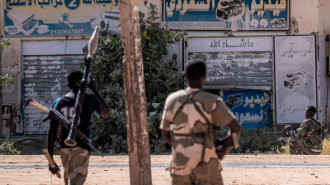Bab Al-Hawa aid crossing must remain open in Syria during harsh winter: IRC
The renewal of the agreement to deliver aid across Turkey’s border to Syria is essential for Syrians to get through one of the harshest winters in living memory, the International Rescue Committee (IRC) has said.
The UN-led cross-border channel at Bab Al-Hawa in northern Syria serves around four million people in the region, and is relied upon by at least 2.4 million Syrians each month. The current agreement for its operation comes up for renewal on 10 January 2023 at the UN Security Council.
An impasse at the UNSC – where Russia, which has propped up the Assad regime, holds veto power – has threatened to cut off this critical humanitarian lifeline.
A humanitarian cross-border channel critical to delivering aid to northwest Syria is up for renewal next month.
— IRC - International Rescue Committee (@RESCUEorg) December 22, 2022
Going into a harsh winter, millions of Syrians need this vital life-line to remain open. https://t.co/Qxyqh3vYWD
"This renewal comes at an incredibly critical time with the onset of winter which will bring freezing temperatures, heavy rain and snowfall, exacerbating already difficult living conditions for vulnerable communities, 800,000 of whom are living in makeshift tents and poor housing conditions," the rights group said in a press release.
Fuel shortages, inflation and an economic crisis have left poor Syrians, especially those living in makeshift camps or tents, with little access to heating or warmth.
An outbreak of cholera, the first in the country in more than a decade, has further added to Syrian woes. The outbreak has further strained the country’s ailing health system, making the UN’s cross border aid to hospitals and clinics across northern and western Syria even more critical.
"Every winter, we witness extreme weather conditions, such as snowstorms and sub-zero temperatures driven by climate change, which overwhelms the communities we work with. This year, the humanitarian situation is worse than ever, even before winter has set in," said Tany Evans, the Syria country director for the IRC.
“Fuel and food prices are skyrocketing, making them unaffordable for the majority of people. At the same time, funding for humanitarian actors is shrinking. Stretched resources, combined with winter, a cholera outbreak and an economic crisis will be a deadly mix should the only lifeline left to this part of Syria be closed,” she added.
IRC’s '2023 Emergency Watchlist' released earlier this month listed Syria as the country sixth most vulnerable to humanitarian crises in 2023.
The NGO said more than 15 million people are in need of humanitarian aid in Syria, which has been the site of a bloody conflict since 2011 when Bashar al-Assad's regime unleashed brutal force against protesters.







 Follow the Middle East's top stories in English at The New Arab on Google News
Follow the Middle East's top stories in English at The New Arab on Google News
![Palestinians mourn loved ones [Getty]](/sites/default/files/styles/image_330x185/public/2184715135.jpeg?h=a5f2f23a&itok=s_V0CL4X)

